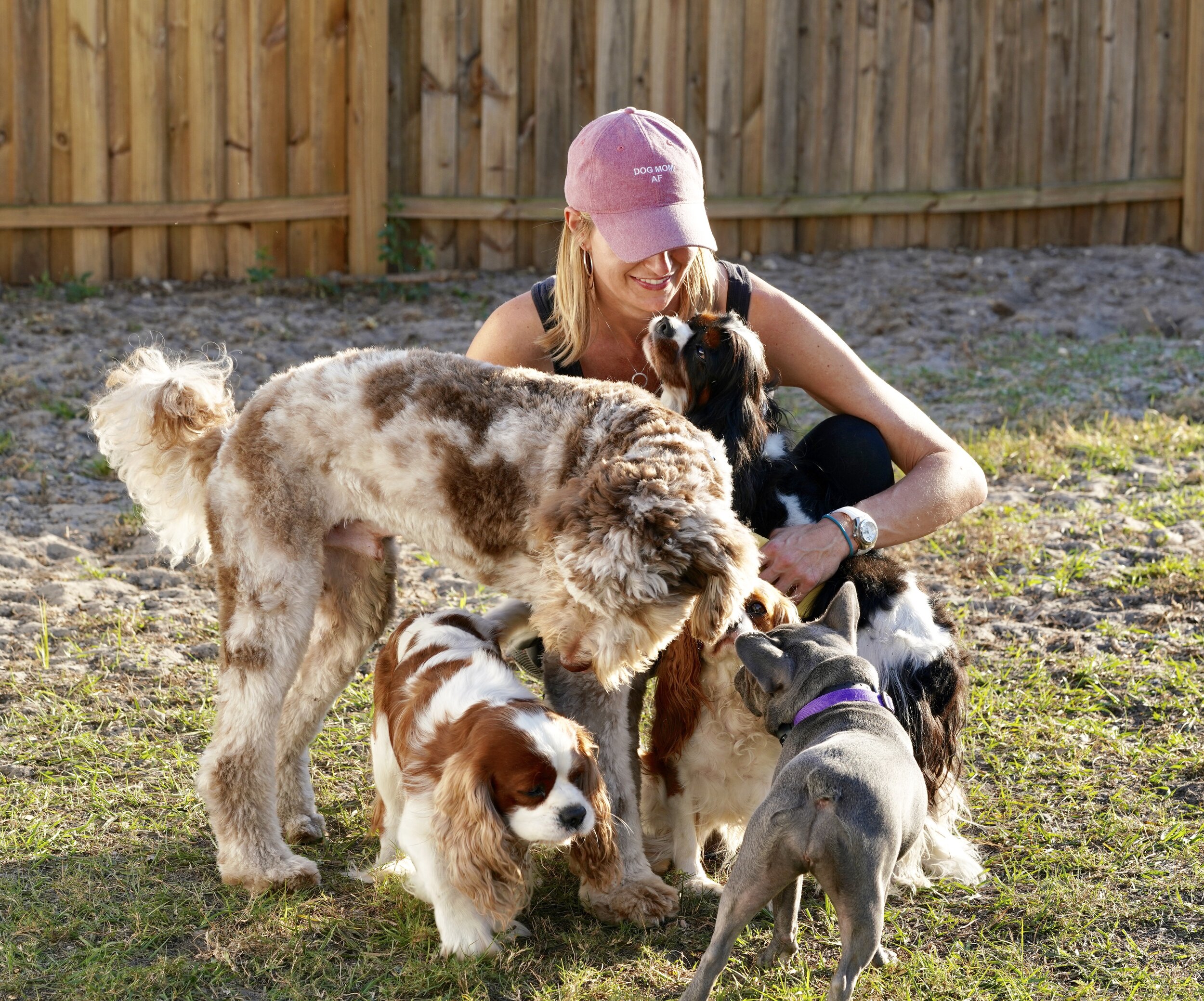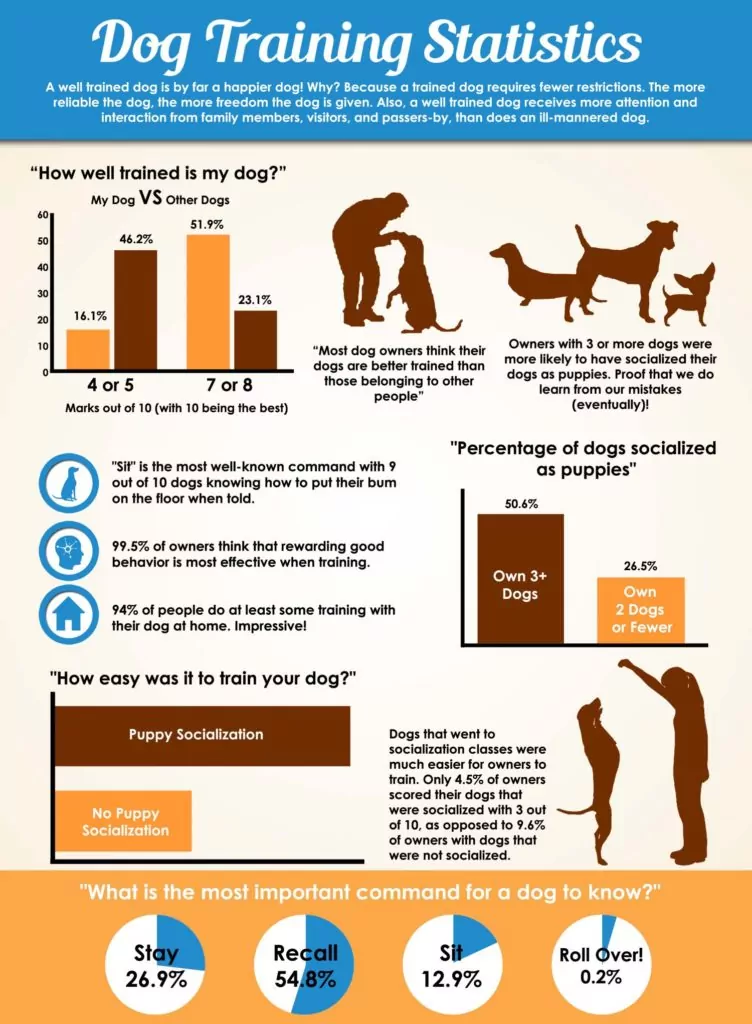Top Canine Educating Methods for each Stage of Your Canine's Life
Efficient pet dog training is essential at every phase of a dog's life, as each phase presents distinct difficulties and opportunities for development. It is essential to identify that training ought to develop alongside a pet dog's advancement, making sure that approaches continue to be efficient and appropriate.
Puppy Educating Fundamentals
Puppy training fundamentals lay the foundation for a mannerly adult dog and involve several vital elements that must not be neglected. The initial stage of training concentrates on establishing a solid bond in between the puppy and its owner, which is essential for effective communication. Socializing is vital; subjecting puppies to numerous environments, people, and various other animals helps them create confidence and versatility, decreasing the chance of behavior concerns later on in life.
Fundamental commands, such as sit, stay, and come, form the structure of obedience training. Using favorable support strategies, such as treats and praise, motivates desired actions and promotes a positive learning experience. Uniformity in commands and training sessions is essential, as pups flourish on routine and structure.
Furthermore, home training is a vital aspect of young puppy training. Developing a regular timetable for bathroom breaks and using assigned areas can help minimize crashes and advertise great behaviors. Generally, an all-around method to puppy training, including obedience, home, and socialization training, sets the phase for a well-adjusted adult dog, making sure an unified connection in between the family pet and its proprietor.
Teen Actions Administration
As young puppies mature into teenagers, their actions can transform considerably, typically presenting brand-new obstacles for proprietors. This developmental stage, usually occurring between six months and two years, is noted by heightened power degrees, curiosity, and a burgeoning feeling of freedom. Comprehending these modifications is crucial for efficient actions administration.
Adolescents might display defiant tendencies, such as neglecting commands they previously understood or involving in destructive habits. Uniformity in training continues to be extremely important; strengthening learned habits via positive reinforcement can aid neutralize these obstacles. Brief, interesting training sessions are necessary to keep their interest and emphasis.

In addition, establishing a structured routine can considerably boost a teenage canine's sense of protection. Normal exercise is crucial to channel their energy favorably, decreasing the likelihood of undesirable habits. By employing these methods, proprietors can properly navigate the intricacies of teenage actions, promoting a well-adjusted, happy canine companion.
Grown-up Pet Dog Obedience Strategies

Positive reinforcement continues to be a key strategy; fulfilling excellent behavior with deals with, praise, or playtime urges conformity. Uniformity is vital; the very same commands and benefits ought to be made use of by all relative to stay clear of confusion.
Incorporating training into day-to-day regimens can also work. As an example, technique commands during walks or meal times, allowing training to mix perfectly right into everyday life. Involving in organized activities, like agility programs or obedience classes, can better enhance a pet dog's abilities while supplying beneficial socializing possibilities.
It is crucial to acknowledge that adult pet dogs might also display stubbornness or complacency. Readjusting training methods to keep their rate of interest, such as differing rewards or presenting brand-new commands, can assist sustain inspiration. In general, a continuous dedication to obedience training will certainly foster a well balanced and well-behaved grown-up canine.
Senior Canine Adjustment Methods
Recognizing the unique demands of senior pet dogs is essential for guaranteeing their convenience and health. As dogs age, they may experience a decline in wheelchair, vision, and cognitive function, requiring customized adjustment strategies.
First, think about modifying the living environment. Ensure that the home is available and risk-free; get rid of obstacles and provide non-slip surfaces to protect against drops. In addition, think about using ramps or actions to help them access their favorite areas.
Second of all, workout should be adjusted to represent reduced stamina and joint wellness (Dog Training For Dogs). Engage in much shorter, extra regular strolls, and include mild tasks like swimming, which can be useful for arthritic joints
Moreover, mental stimulation continues to be critical. Usage straightforward challenge toys or take part in scent work to maintain their minds sharp, while avoiding overwhelming jobs that might irritate them.
Last but not least, routine veterinary exams are necessary to keep track of health modifications and adjust treatment regimens as necessary. By carrying out these adaptation strategies, you can boost the quality of life for your senior canine, guaranteeing they age gracefully and easily.
Lifelong Discovering and Enrichment
While dogs of any ages profit from finding out and mental stimulation, long-lasting enrichment is specifically vital for maintaining cognitive wellness and psychological well-being in both elderly and younger dogs. Engaging activities not just boost a dog's lifestyle however also enhance the bond between the pet and its proprietor.
Enrichment can take numerous types, consisting of interactive toys, you can find out more problem feeders, and scent work, which promote a pet dog's senses and urge problem-solving. Normal training sessions, incorporating new commands or techniques, keeps their minds sharp and promotes a sense of achievement. Socializing with other pets and people is equally important, as it helps stop behavioral problems and fosters versatility.
Additionally, integrating exercise into a dog's routine is necessary for total wellness. Activities like dexterity training, bring, or long walks supply both psychological and physical excitement, making sure pet dogs continue to be happy and engaged.
Finally, take into consideration varying the environment by introducing new areas Check This Out for walks or playdates. This adjustment can reignite a pet's inquisitiveness and enthusiasm for exploration. Lifelong understanding and enrichment not just add to a satisfying life yet additionally promote an unified connection with your canine buddy.
Verdict
Reliable pet dog training strategies develop throughout a canine's life, attending to the distinct requirements of each developmental phase. From developing fundamental abilities in puppies to managing teen actions, reinforcing obedience in adults, and adapting strategies for elders, a comprehensive strategy ensures ideal communication and actions. Stressing routine mental excitement, socializing, and physical workout fosters a balanced and meeting life for pet dogs. Eventually, consistent application of these strategies adds to a harmonious connection in between canines and their human buddies.
Efficient canine training is vital at every phase of a canine's life, as each visit site phase provides special difficulties and chances for growth.Puppy training basics lay the groundwork for a well-behaved adult dog and involve numerous crucial components that should not be ignored. Overall, an all-round technique to puppy training, including socializing, obedience, and residence training, sets the phase for a well-adjusted grown-up pet dog, making certain a harmonious relationship in between the animal and its owner.
Many pet dog proprietors may locate that adult pet dogs, while usually more stable in habits than their teenage counterparts, still call for constant training to keep obedience and excellent manners.Efficient pet dog training methods progress throughout a pet's life, addressing the distinct needs of each developmental phase.